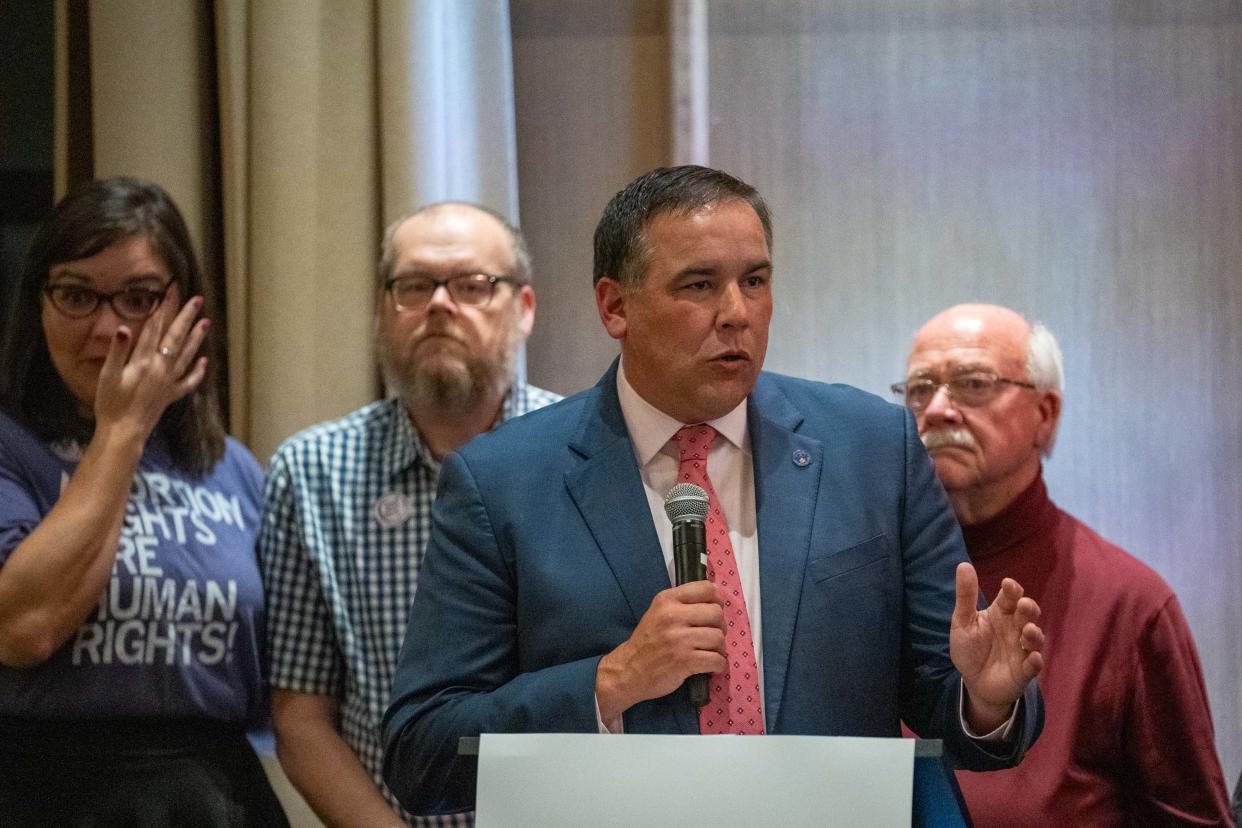Are more people, greater density, taller housing bad? Columbus must plan for growth| Ginther

Andrew J. Ginther has been mayor of Columbus since 2016.
Columbus is growing faster than ever before – that’s a fact.
In order to meet this moment with the force and urgency it deserves, we need to do things differently to build housing in step with demand. This is a task of historic proportions, and I’m proud to say that we are more than ready for it.
I see it in feedback from residents who are open to the idea of more neighbors, greater density and taller residential buildings in their neighborhoods.
I hear it from our neighbors who are concerned about the dire consequences of insufficient housing in a rapidly growing community, and from families who have to make tough choices in order to pay this month’s rent.
Our view: Columbus' housing market not cutting it. We must all open our eyes to crisis
Columbus voters not only honored me with re-election to a third term as mayor, but also re-elected the incumbent members of city council who have partnered with me to make the hard choices that are needed to build more housing.
What is the Columbus Housing Strategy?
The next phase of our journey begins now.
The Columbus Housing Strategy is ambitious and comprehensive, but is based upon a simple fact: For every one job we create in the region, we need to build one home.
My strategy calls on the region to double the number of housing units we bring online each year because, as it stands today, we aren’t building enough.
In order to catch up, we need more than good intentions and sturdy resolve; we need smart policies to remove the barriers to creating housing.
Ginther: Columbus area communities must stop adding jobs without allowing new homes, people
One of those is the rising cost of building new housing, which has been exacerbated in recent years by more expensive labor, materials and land, as well as rising interest rates.
To address this, my administration has asked Columbus City Council to expand the geographic reach of the city’s residential tax incentive policy, which offers tax incentives for housing developments that include affordable housing units.
Housing should be available to everyone in opportunity-rich neighborhoods at affordable price points – but the free market alone isn’t going to make it happen.
That’s why I’m bringing this policy forward.
To date, this tool has been available only in neighborhoods that have historically experienced disinvestment.
How will expanding residential tax incentive area help?
The geographic expansion of this policy will attract new investment and accelerate development, creating more housing supply at a time when Columbus needs it most. It will also keep affordable housing opportunities from being segregated in certain neighborhoods, and it will facilitate affordable housing in neighborhoods with access to jobs and transportation.
We can also accelerate housing construction by changing antiquated regulation.
Our current zoning code was created to serve the Columbus of the 1950s.
Every zoning variance for a new housing development costs us resources that would be better invested in construction – and costs us time that we don’t have to address our housing shortage.
On that front, we’ve been engaging residents from all corners of the city to join us in visualizing and evaluating a modernized zoning code. A survey open now asks residents how they would feel about residential and mixed-use development in their neighborhoods.
More: Where to access housing, food and health care resources throughout Columbus
What’s clear from the early responses is that our residents get it.
We’re ready to build new housing in ways that cities like Austin and Seattle failed to do, before their housing affordability slipped away. And we’re ready to welcome more neighbors to our own neighborhoods, in order to keep Columbus affordable, equitable and livable.
This spring, we will present a map that shows what the new zoning requirements will look like and where they will be. Following a period of public feedback, city council will vote on the zoning update.
I’m excited about these new policies, and I’m eager to move them forward. We will keep educating our community about the Columbus Housing Strategy, and we will continue to listen. But inaction is not an option.
This is a regional issue — and I will continue to remind our Central Ohio neighbors and stakeholders that Columbus cannot solve this housing crisis on our own.
But we are leading the way. It is what we were elected to do.
Andrew J. Ginther has been mayor of Columbus since 2016.
This article originally appeared on The Columbus Dispatch: Fixing Columbus' housing shortage. What's Andrew Ginther's plan?

